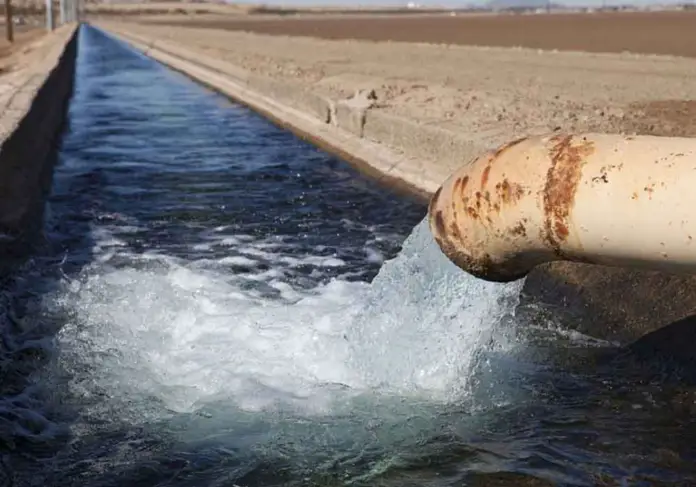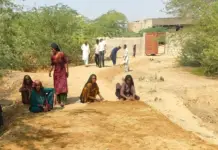By Muhammad Haris Farooq Shah
There are things that can be controlled then there are uncontrollable ones. The talk about climate change and its effects on the world, especially human lives, has been going on for a few decades now and all the experts are trying to find out any possible way to strike a balance between the extreme weather conditions across the globe. There are parts of the world where humanity is going through droughts, water shortages and calamities that are directly associated with climate change. The world has seen enormous wildfires across different continents in the recent past which resulted in the massive destruction of billions and trillions of trees and of course wildlife. Countries like America, Australia, Brazil, the United Kingdom, India & Pakistan have suffered great losses of lives, trees, animals and many valuables during the past decade due to these wildfires.
The Shirani Disaster: A deadly fire erupted in the pine [Chilgoza] forests of the Koh-e-Sulaiman Range in the Shirani forest. It is one of the largest fruit-bearing areas in the country near the Balochistan-KPK border. It is home to more than 10.8 million pine trees. Huge flames, reaching high up to the sky, roared ferociously as they gulped down one tree after another, forgiving nothing that came their way. The experts blame the extreme temperatures and human interference for this catastrophe. It is said that the trees are planted by a generation and their fruits are born by the next generation. I am afraid that the next generation may not be able to bear fruits from them anymore.
The shortage of drinkable water across the globe has become a burning issue with the passage of time. Humanity is facing the challenge of providing clean drinkable water for the survival of human life, especially in third-world countries. There are few countries where there is no drinking water at all and the only source is rainwater that falls once in a blue moon. That’s one side of the coin when we talk about the effects of climate change. The shortage of water, the droughts of food and the weather behaved differently at different times. The weathering behaviour, the rain cycles, the winters, the summers, the monsoons, everything has changed over the years in different parts of the world. We have seen for the first time in history, temperatures crossing the 40 in the United Kingdom.
Excessive heat waves in different parts of the world have been seen which is uncharacteristic for the cycle of seasons. The quality of air index, air pollution, noise, heat waves all of these terms have normally been associated with third-world or underdeveloped countries but their effects are now reaching elsewhere as well. Indian sub-continent is one of the most affected by these deadly effects of climate change. During every year we see an increase in fog, smog and excessive rainfall. The quality of air is decreasing every year, the pollution is increasing every year.
This year especially we have seen an increase in rainfalls as the monsoons are wreaking havoc across India, Bangladesh and especially Pakistan. We are experiencing the worst flash floods across entire Pakistan. We have had irregular and excessive rainfalls across the country which has resulted in floods in all the rivers especially Balochistan, Sindh and Southern Punjab. We are facing a crisis in most parts of the country where hundreds have lost their lives, millions have gone homeless and edibles worth billions have been destroyed by these floods. A human catastrophe is right in front of us where schools, hospitals, mosques, homes, hotels, roads, infrastructure everything has been destroyed. There are no rail tracks, the stadiums have been flooded, the under-construction dams have been flooded and as they say in Sindh Province, there is not a single patch of dry soil left, everything has been destroyed. Men, women, young & old, everyone has been affected. Covid-19effects were slowly but gradually being worked over but this disaster has again pushed these areas into survival mode. The federal and provincial governments reacted to these situations very late but now realizing the gravity of the situation, the rescue and relief operations have begun. The civil society has also stepped up in providing relief to the affected people. Pakistan army as always is taking the lead role in these operations. Local and international NGOs have started providing food, shelter and medical facilities to the affected people. I personally visited Taunsa sharif and Dera Ghazi Khan areas with my NGO “Falah”. The magnitude of devastation that we saw was heart-wrenching. We could not stop our tears upon experiencing the worst than ever human disaster right before our eyes. There were kids who could barely crawl and they had lost their parents, and their homes and God knows how they will be able to survive this situation. There were mothers seen crying for their lost kids, and there were men awestruck by these floods whose eyes were blank and they could not gather themselves from the losses that they have suffered. Their homes, families, their animals, and all of their belongings were swept away in the floods and they were not even able to speak of the number of losses that they had. All they could do was just look up to the skies and ask and pray for help. “Falah” is a student-based NGO with very limited resources but we tried our little bit to help out these people in need. Now is the time to serve our country and help our countrymen in need. We as a nation have to step forward quickly, regardless of any background and do our bit to help these people who have been left under the open skies without home, food, clothes and medicine.
Recently in July 2022, I was part of a 2 weeks “Young leadership Program” which took place at the “Oriel College”, University of Oxford UK. I came across students from different parts of the world. To my surprise, most of them were less bothered about their own attire and more worried about the environment. The world is slowly but gradually coming to a point where the youth of these most affected countries have to step up and play their role in the revival of our natural environment. We, the youth have seen some greenery around us, we may have seen beautiful birds humming about here and there, and we may have seen beautiful butterflies spreading joy right before our eyes, but the question to ponder over is, are we giving our next generations a healthy environment to live in? are we making arrangements for our future to breathe in the fresh air? are we doing anything to protect our future? I think we the youth have to move on right now and start making our environment better and make our world suitable for our future to breathe in and live in. The winters are just around the corner and I fear that we are going to face the wrath of that season as well (God forbid). We may face severe cold waves, excessive snowfalls over the hills, and more fog and smog and there are chances of this fog spreading to more parts of the country this season (God forbid). I fear that in the coming years there are going to be more such situations where every season brings more suffering, more misery and pain, more floods, more excessive rainfalls and snowfalls and ultimately more life-threatening environment. We must be proactive and we must take effective measures right now because tomorrow is going to bring more questions to answer.
Things to do immediately: Now as we are going through this crisis there is a certain measure that I would like to suggest to be taken immediately for the flood-affected areas. There are some long-term solutions as well.
- I would suggest to the Government and all the relief agencies to please set up mobile medical units immediately so that the sick and affected can be treated immediately. The magnitude and the area of the devastation are so vast that we must take care of all the survivors, especially the pregnant women who may need medical help and treatment.
- The devastation of schools has hampered the education sector which had already been hit hard during Covid-19 so I would suggest that immediate make-shift schools should be set up where kids can be kept busy with the help of local educated people who should try to educate the kids. Education can create awareness as well which is required at every stage of recovery.
- Preventive measures should be taken to stop the outbreak of viral diseases. People should be given awareness about dengue especially as it spreads very quickly these days.
- The Government should work on producing electric cars. The developed countries who are also to be blamed for the climatic disasters around the world are slowly turning their attention to Solar or electric cars so that our environment can be saved from pollution. Countries like India have started producing electric cars but in our country, we are busy making factories that spew venom into our air and result in these massive climate disasters. We should act wisely and save our future.
- For a long-term solution, I would suggest the setting up of more dams to store water for better usage. We need to increase our water storage capacity as a country so that it can be used in better ways.
Closing Argument: The point I want to make is that we have to stop messing around with mother nature. We must protect our environment, plant more trees, build more dams, strengthen our infrastructures and plan better to prevent ourselves from facing floods every year. Either we face a shortage of water for drinking or we face these flash floods every year where water is in so much abundance that it is uncontrollable. This imbalance of excess and shortage is going to play havoc with our lives in future if not addressed at the earliest. We have to strike a balance as soon as possible by planning better for the future.







